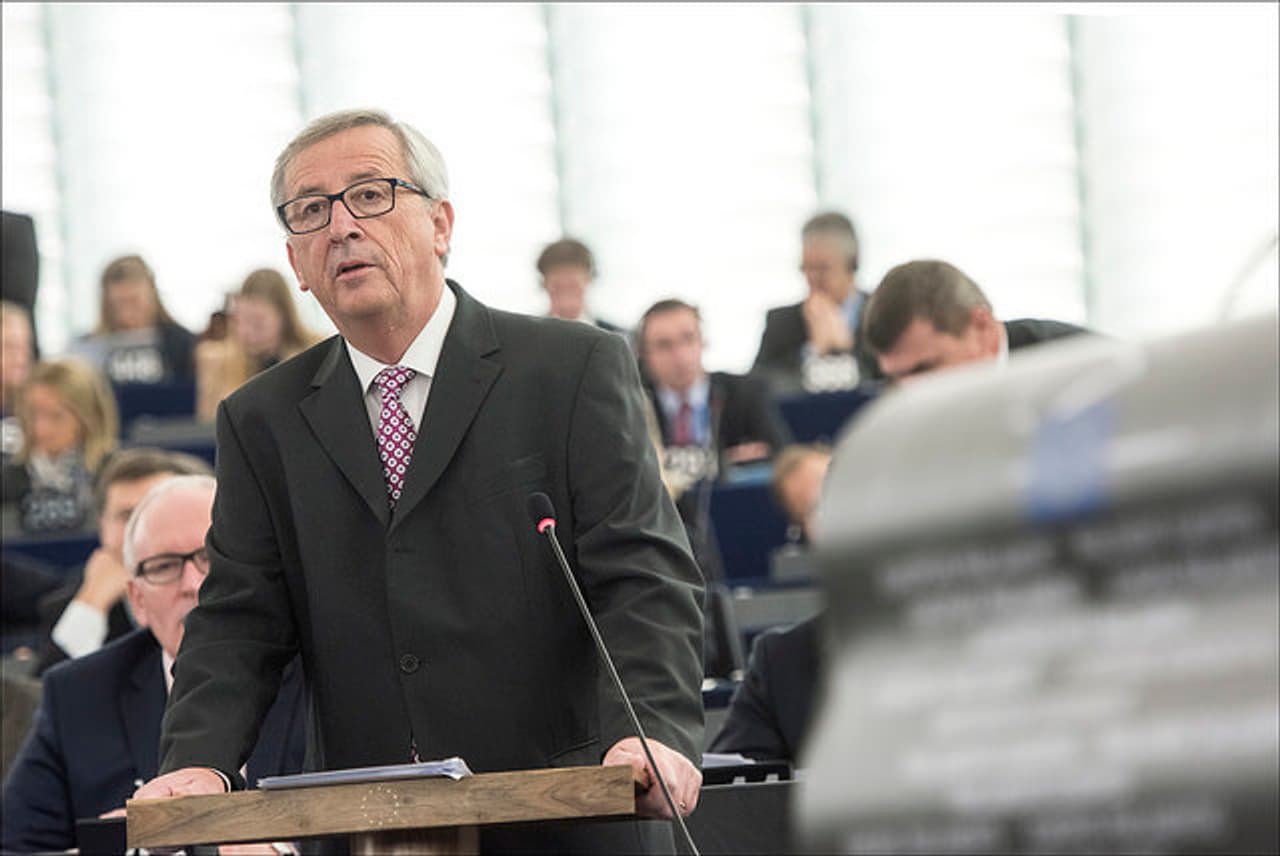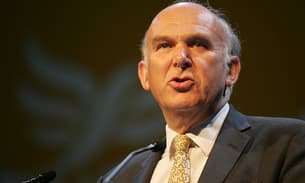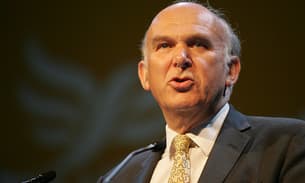
Juncker’s €315bn investment plan for EU in trouble as Nobel scientists criticise raid on space and research budget
The European Commission president (above) unveils his Investment Plan for Europe
Jean-Claude Juncker’s flagship policy to revive Europe’s moribund economy by investing €315bn in new infrastructure projects has run into controversy just two months after it was launched.
Nobel prize winning scientists are among those angered by a move to raid €2.7bn from the EU’s pioneering research, space and innovation budget to help kickstart a new fund set up by the powerful president of the European Commission.
A number of UK laureates are writing to the Commission and heads of member states to try and force a climb down, with one telling the Bureau the cuts would be “disastrous”.
However, according to an internal memo leaked to the Bureau, the Commission claims it has “unanimous support” from officials of the 28 member states for its move.
Juncker’s tactics raise broader questions over what is the reality of his infrastructure plan, what impact it might have on Europe’s economy and whether some of it is ‘smoke and mirrors’ political posturing.
The Bureau is today launching an investigation into the plan, partly to examine these concerns.
The former prime minister of Luxembourg was named the Commission’s president last November, with his idea for a European Fund for Strategic Investments (EFSI) a key plank of his manifesto.
The fund aims to mobilise €315bn, much of it private sector finance, to increase jobs and growth by investing in new transport, energy and IT projects.
The idea is to assemble a starting pot of €21bn from a combination of finances at the Commission and the European Investment Bank, and then to leverage that by a factor of 15 through what has been described as “innovative financing” – a mixture of member state contributions, bonds and private bank debt.
The cash will be spent on new roads, ports, energy facilities, green technology and IT projects many of which were moth-balled as a result of the economic crisis.
The new controversy centres on the initial €21bn starting fund, which comprises €16bn from the Commission – €8bn in cash and a further €8bn in guarantees – and €5bn from the European Investment Bank.
However, the €8bn Commission cash is not actually new money but merely transfers from other key budgets.
The Bureau has obtained an internal Commission memo sent last week to 28 European finance ministers ahead of their meeting in Brussels tomorrow. The memo indicates it is almost certain that Juncker’s plan will mean deep cuts to some budgets.
It states that the proposal to finance the initiative by slicing €2.7bn from a budget previously earmarked for research and innovation has received “unanimous support” from member states’ officials.
The Commission argues that the proposed cut represents only 3.5% of Europe’s innovation programme and that its most recent seven year settlement was substantially higher than the previous period. It adds that investment in innovative projects will actually increase once the new Investment Plan is up and running.
But scientists, researchers and engineers from some of the continent’s leading university groups including Academia Europaea, EuroScience and the League of European Research Universities (LERU) have in recent days expressed serious concern at the move.
Peter Tindermans, secretary general of EuroScience which represents scientists working in public sector institutions, universities, research institutes and the business sector, said: “Scientists and technologists have been geared up to an increased commitment by the EU to research and innovation. Cuts represent a breach of trust.”
Tindermans added: “This will create doubts among European researchers, and significantly researchers outside Europe about whether Europe is after all a very good place to do research.”
Professor Sir John Walker, a Nobel prize winning chemist at Cambridge University who is one of the signatories to the letter to the Commission, told the Bureau: “If the proposals were to be implemented they would cause immense damage to the EU science effort and seriously undermine long-term economic recovery based on knowledge and invention. It is nothing less than a disastrous proposal.”
Labour MEP Theresa Griffin, who sits on the European Parliament’s industry, research and energy committee, also expressed her “extreme concern”.
The €2.7bn cut is being made to Europe’s Horizon 2020 research and innovation budget pot. Over seven years from 2014, Horizon 2020 is supposed to commit €80bn to encourage new scientific and technological breakthroughs.
Among the organisations facing the biggest cuts according to the Commission’s legislative proposal published last month is the European Research Centre which this year has a budget of €1.7bn but is now in line for a €90m reduction and €221m over five years.
Europe’s space programme will see an €80m cut while a funding package for nanotechnology, advanced materials, laser and biotechnology is braced for a €169m reduction.
In addition to the €2.7bn, the rest of the €8bn needed will come from a €3.3bn cut to the Connecting Europe Facility transport budget, and €2bn from what is described as “unallocated margin” – unspent EU cash from its €960bn seven year budget to 2020.
What next for the Juncker Plan?
The Juncker Plan is still in its infancy but a number of finance roadshows to try and attract private sector finance have already taken place.
In December member states submitted a 600 page document of possible projects requiring €1.2trillion to build.
The majority of projects submitted across the 28 member states are linked to transport and energy. There is concern among climate change campaigners that renewable schemes will lose out as investment decisions are made over the next three years.
Among the largest UK projects submitted to the Commission for consideration last December is a £25bn nuclear, wind, tidal, biomass and solar project in Anglesey, a collection of offshore wind projects off the British coast requiring £21.3bn and the £46bn Hinkley Point nuclear facility.
A number of flood defence schemes, road improvements and broadband projects are also included in the UK’s project list.
“Independent experts” selected by the Commission and the European Investment Bank will now begin the filtering process to determine which projects get the go-ahead. Projects will be scored for the number of jobs they generate, the growth they would yield and their anticipated profitability.
The plan is expected to result in major fee generating opportunities for banks. It is envisaged that the Juncker plan will revive Europe’s flagging securitsation market which has suffered since the financial crisis. Banks will be called upon to issue bonds on the back of promised income streams from new roads, ports, power plants and IT projects.
Jyrki Katainen, vice-president and European Commissioner for Jobs, Growth and Investment, who is tasked with ensuring the Investment Plan is operational by the summer, has been busy discussing the Investment Plan with a range of banks and multinational companies at last month’s Davos meeting.
Transparency disclosures show that Katainen, the former Finnish prime minister, met officials from the Institute of International Finance –the world’s most powerful bank lobby organisation – Bank of America and Banco Bilbao Vizcaya Argentaria.
He also discussed the plan at Davos with Microsoft and BT Group who would benefit from work extending Europe’s broadband coverage.




